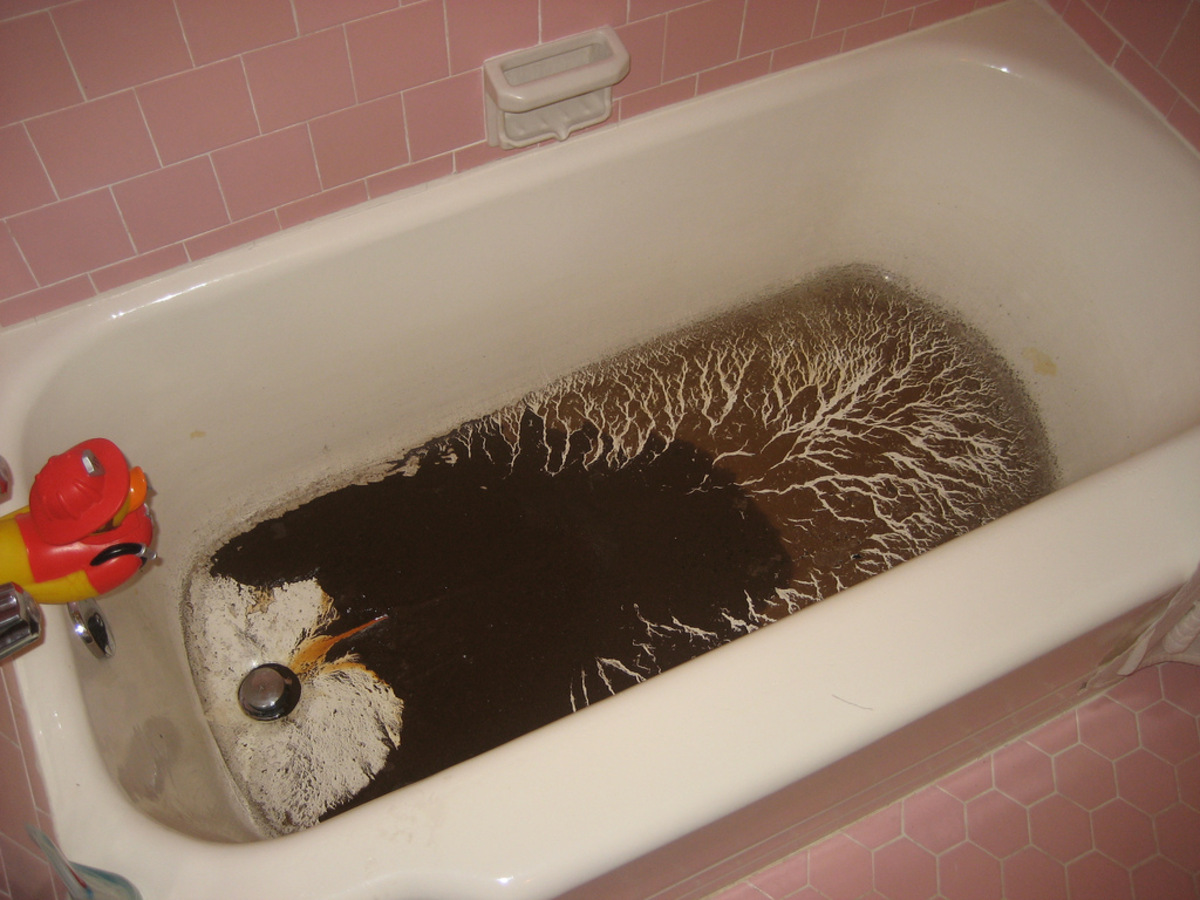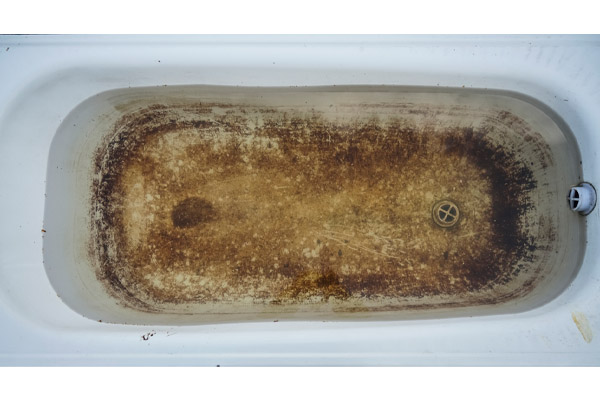Examining the Causes of Sewage Backflow in the Bathtub
Examining the Causes of Sewage Backflow in the Bathtub
Blog Article
We've noticed this great article about What To Do If Sewage Starts Backing Up Into the Shower listed below on the internet and felt it made perfect sense to relate it with you on this page.

Sewage backup in the bathtub can be an upsetting and unsanitary problem for any kind of property owner. Not just is it bothersome, however it also presents major health and wellness dangers and suggests underlying concerns with the plumbing system. Comprehending why sewer is turning up with the bathtub is vital for taking suitable activity to attend to the problem efficiently.
Introduction to the Problem
Common Factors for Sewage Backup
Blockages in the Sewer Line
One of one of the most typical reasons for sewage back-up is an obstruction in the sewer line. This can occur as a result of the buildup of debris, grease, or foreign items in the pipes, protecting against proper circulation and causing sewer to back up into your bathtub.
Tree Origin Invasion
Tree roots seeking moisture and nutrients can infiltrate sewer lines through small fractures or joints. Gradually, these origins can expand and broaden, triggering significant damage to the pipelines and causing sewer backup concerns.
Recognizing the Problem
When sewer starts backing up into the tub, it's a clear sign of a problem with the drain system. The wastewater that must be flowing far from your home is instead finding its way back into your living space, which can lead to substantial damage and health hazards.
Possible Causes
Numerous variables can contribute to sewage back-up in the tub. From obstructions in the sewage system line to concerns with the plumbing framework, identifying the root cause is important for discovering a service.
Aging Framework
Older homes might have obsoleted plumbing systems that are extra susceptible to rust, fractures, and deterioration. As pipes age, they come to be more prone to leakages and clogs, raising the likelihood of sewage back-up occurrences.
Heavy Rainfall or Flooding
During periods of heavy rainfall or flooding, the drain system might come to be overloaded with excess water, creating back-ups and overflows. This can result in sewage backing up right into bathtubs and various other fixtures inside the home.
Indications of Sewage Backup
Foul Odors
Undesirable odors emanating from drains or fixtures, specifically in the washroom, may indicate sewer back-up issues. These smells are frequently strong and relentless, signifying a trouble that calls for immediate interest.
Slow Draining Fixtures
Bathtubs, sinks, and toilets that drain pipes gradually or otherwise whatsoever could be experiencing sewage backup. If numerous fixtures are affected at the same time, it's likely that the issue stems from an usual point, such as the primary drain line.
Gurgling Noises
Weird gurgling or bubbling noises originating from drains when water is running somewhere else in the house are a measure of air caught in the plumbing system. This air buildup can result from sewage back-up and need to be checked out promptly.
Wellness Risks Associated with Sewage Backup
Contamination of Water Supply
Sewage back-up can contaminate the water system in your home, presenting a serious health and wellness risk to you and your family members. Direct exposure to polluted water can bring about intestinal concerns, skin infections, and other health problems.
Mold Development
Moisture from sewage back-up can create suitable problems for mold and mildew development in your home. Mold spores can aggravate breathing issues and trigger allergic reactions in delicate individuals, making punctual cleanup important.
Spread of Condition
Sewage has dangerous bacteria, viruses, and parasites that can trigger a series of diseases, consisting of liver disease, cholera, and gastroenteritis. Entering into contact with sewage or infected surfaces puts you at risk of infection.
Cleaning Up After Sewage Back-up
Disinfection Procedures
Completely disinfect and disinfect affected areas after sewer back-up to eliminate hazardous bacteria and stop mold growth. Use ideal cleaning items and protective equipment to make certain risk-free and reliable cleanup.
Repair of Impacted Locations
Repair any kind of damages to floor covering, walls, or components brought on by sewage back-up. Relying on the degree of the damage, you may need to change carpeting, drywall, or other products to restore your home to its pre-loss problem.
Immediate Actions to Take
Shutting Off Supply Of Water
In the event of sewage backup, it's essential to turn off the supply of water to avoid additional contamination and damage. Situate the primary water shutoff valve in your home and shut it off till the concern can be settled.
Contacting an Expert Plumber
Dealing with sewer backup is not a DIY work. Get in touch with an accredited plumber with experience in handling sewage-related issues to analyze the circumstance and execute needed repairs or cleanups.
Staying Clear Of Contact with Polluted Water
Up until the sewer backup is resolved, prevent contact with polluted water to prevent the spread of germs and virus. Use protective equipment if you should be in the affected area and clean your hands thoroughly afterward.
Preventive Measures
Normal Maintenance of Drain Lines
Arrange normal evaluations and maintenance of your drain lines to identify and address potential concerns before they rise right into major issues. This can consist of cleaning particles, evaluating for tree root invasion, and fixing any kind of broken pipes.
Setting Up Bayou Shutoffs
Consider installing bayou valves in your plumbing system to prevent sewer from receding right into your home during periods of heavy rainfall or flooding. These valves immediately close when water starts backing up, safeguarding your building from contamination.
Appropriate Disposal of Household Waste
Prevent flushing anything aside from toilet paper and human waste down the toilet to prevent blockages and clogs in the sewage system line. Dispose of grease, oil, and various other home chemicals correctly to decrease the risk of plumbing problems.
Why is There Sewage Coming Up Through the Bathtub
Sewage in your bathtub is a major problem that can make you want to abandon the bathroom for good. You don’t have to. However, it is important to identify the source of the issue and take the necessary steps to resolve it in order to avoid any health risks and property damage. In this article, we will discuss what could be causing sewage to back up through your bathtub so you can take action quickly and effectively.
The Main Reason For Sewage Backup in The Bathtub
All the sinks and toilets in your home connect to different pipes that lead to the main sewer line. The sewer line then connects to the municipal sewer system. This connection works seamlessly on a daily basis, but there can sometimes be a problem with the main sewer line.
The most common cause of sewage backup is a clogged or blocked main sewer line. The main sewer line can be clogged due to the accumulation of debris, tree roots or grease buildup, or other materials. Another possible cause is a collapsed pipe. When this happens, your toilets and sinks won’t be able to drain properly. This is when sewage starts backing up through the bathtub. If the problem has been occurring for some time now, it might be time to consult with a plumber as there may be more severe damage that needs fixing.
How Can You Tell if it’s Coming From Your Sewer Line?
If you’re experiencing a sewage backup in your bathtub, then you can use a few simple methods to determine if it is coming from the main sewer line. First, try to unclog the tub drain with a plunger or an auger and see if that helps. If not, then inspect all of the drains in your house and check if there is any blockage in them. If some of the other drains are not working fine, then it’s likely the problem is with your main sewer line.
Common Signs of a Clogged Main Sewer Line
If you suspect that your main sewer line is blocked, then there are a few common signs to look out for. Frequent clogs in your home are a sure sign of a clogged sewer line. You can also check for slow drainage from all the plumbing fixtures.
Slow Drains
If you notice that it takes longer for your sinks and toilets to drain, then this could be a sign of a clogged main sewer line.
Frequent Clogs
Another common sign is that your drains or toilets become clogged almost all of the time. If this happens, then it could be a sign that the main sewer line is blocked.
Water Backup
Do you notice water or sewage coming back up from any of the drains in your home? If your answer is yes, you may have a clogged main sewer line.
Sinkholes
If you’ve noticed sinkholes in your yard or overflowing sewage from the ground, you may be facing a blocked sewer line issue.
Your Shower or Sink Makes Gurgling Noises
Have you noticed gurgling noises coming from your sink or shower lately? These are typically signs of a blocked sewer line and should be checked out immediately.
How to Prevent a Main Sewer Line Clog
Once you’ve identified that your main sewer line is clogged, it’s important to take steps to prevent it from happening again. The best way to do this is to avoid putting any solid material that can clog the drain, such as grease and other debris. You should also be mindful of what you flush down your toilet. In addition, you should schedule regular maintenance for your main sewer line. This will help keep it clear and free from clogs or backups.
What Should You do if You Notice Sewage Backing up Through The Bathtub?
If you’ve noticed sewage backing up through the bathtub, then it is important to call a professional plumber immediately. A plumber can inspect the situation and determine what the cause is, such as a blocked main sewer line. They will also be able to advise you on how best to fix the issue. In some cases, a simple drain cleaning may be all that is needed.
However, if the blockage is severe, then your plumber may need to use more advanced methods to clear the blockage.
No matter what, it is important to always call a professional plumber if you experience any kind of sewage backup. They will be able to assess the situation and provide you with a solution that is best for your home.
https://baylorinc.com/blog/why-is-there-sewage-coming-up-through-the-bathtub/

I found that blog entry on Why sewage is coming up through your bathtub when doing a search on the search engines. Sharing is nice. Helping others is fun. I praise you for being here. Kindly visit our website back soon.
View
Report this page